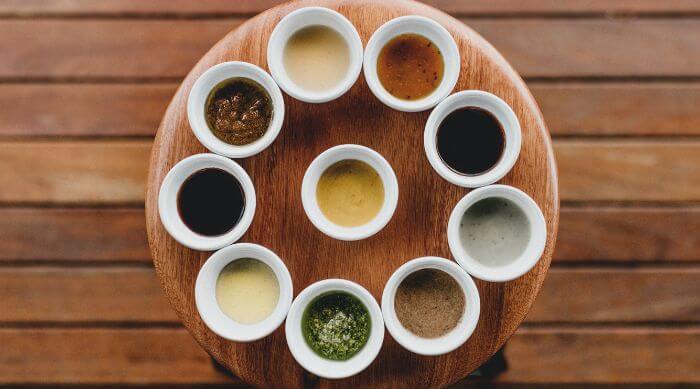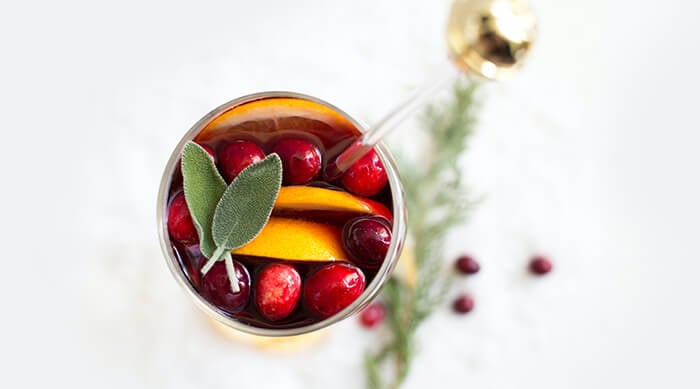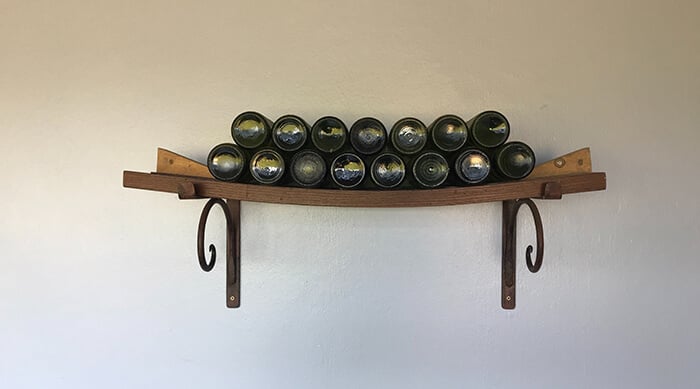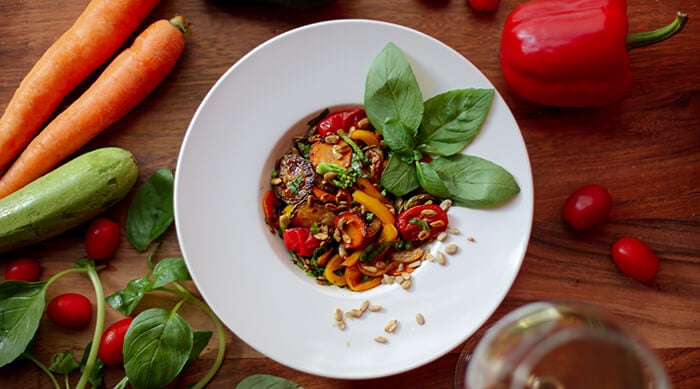You don’t need to come up with a Plan B if you don’t have (or want!) wine for a new recipe. There are plenty of accessible substitutes. The trick is knowing how to match the purpose and flavor of the wine in your recipe.
When a recipe calls for red wine what should I use? When a recipe calls for red wine, you should use red wine vinegar, fruit juices, or non-alcoholic wine as substitutes.
Table of Contents
Doesn’t the alcohol cook off anyway?
9. Vegetable, Chicken, or Beef Stock
10. Liquid From Canned Mushrooms
Why do recipes call for wine?
Recipes call for wine when they want to add flavor or aroma to a dish, marinade or tenderize meat, or deglaze a pan. Red wine in particular is also used to add color to certain recipes.
Most home cooks know that you should avoid anything labeled “cooking wine” at the grocery store if you’re really trying to show off the wine’s flavors in a dish. It’s likely full of preservatives and could mess with the overall flavor profile of your recipe.
That said, if you’re looking for non-alcoholic cooking wine substitutes in your recipes, you have quite a few options, even if you’re making something that doesn’t leave any alcohol behind.
Doesn’t the alcohol cook off anyway?
Some of the alcohol content in recipes does burn off in the course of cooking, but it might be less than you think.
How much alcohol remains depends on the concentration of alcohol used in the recipe, the level of heat, even the size of your pot. Heat and the size of your cooking vessels affect evaporation rates.
If you like a good “set it and forget it” recipe with your slow cooker, you may only have trace amounts of alcohol left when it’s time to serve. It’s really up to your comfort level and your purpose for seeking out alcohol alternatives if you want substitutes in those situations.
| Preparation Method | Percent of Alcohol Retained |
| Alcohol added to boiling reductions | 85% |
| Flambé | 75% |
| No heat (stored overnight) | 70% |
| Baked/simmered for 15 minutes | 40% |
| Baked/simmered for 30 minutes | 35% |
| Baked/simmered for 1 hour | 25% |
| Baked/simmered for 1.5 hours | 20% |
| Baked/simmered for 2 hours | 10% |
| Baked/simmered for 2.5 hours | 5% |
It’s safe to assume that simmering something for 3 hours or more only leaves trace amounts of alcohol in a dish, but you can never guarantee that a recipe is 100% alcohol-free if it uses alcohol.
For dinner parties, it’s best to be transparent, especially if you’re inviting pregnant friends or anyone with allergies or health conditions. Stews that have been over a fire all day are probably safe for all, but if you want to be extra cautious, stick to alcohol alternatives.
1. Dealcoholized Wine
Cooking with non-alcoholic wine is about as close as you’re going to get to cooking with conventional wine. The key here is choosing a non-alcoholic wine that you’d drink on its own.
Cooking wine should never be an afterthought, and you definitely shouldn’t cook with a wine that’s been on your counter for a little too long.
If you’re not sure where to start with non-alcoholic wine, Surely has high-quality varietals, suitable for that beef stew or seafood risotto. Find us in stores or join our Wine Club for 25% off every order and member-only perks.
2. Vinegar
The type of vinegar you choose for a recipe depends on the type of wine used in that recipe. Note that wine vinegars may contain trace amounts of alcohol, but most of that alcohol is converted into acetic acid during fermentation.
Can I use red wine instead of red wine vinegar? You can use red wine instead of red wine vinegar in marinades, pan sauces, and stews. Red wine vinegar as a substitute adds a layer of acidity to dishes that you may not get out of a dry red wine.
- Red wine vinegar is delicious in sauces, marinades, and for deglazing your pan. You can also use this one in hearty beef dishes or thicker stews and soups.
- White wine vinegars work well as white wine substitutes in salad dressings and seafood sauces. White vinegars are more acidic than most white wines, but you can dilute them by half to get to a similar flavor profile.
- Apple cider vinegar is a staple for marinating, sauces, and Asian-inspired reciples. It has a more fruity flavor than red or white wine vinegars, so it’s great in sweet and sour sauces.
- Balsamic vinegar is a flavor enhancer in dressings, marinades, and rich sauces. If you’ve never had a high-quality style over vanilla ice cream, by the way, it’s an underrated treat.
3. Grape Juice
Red grape juice gets pretty close to red wine in flavor profile and the health benefits of red wine. Those red grape skins are natural antioxidants that support heart health and fight inflammation.
When you add alcohol in wine or all of that sugar found in most grape juices, those benefits aren’t always as obvious. If you’re just looking for recipe substitutes, an equal amount of grape juice works well as a wine substitute. Use white grape juice for recipes that call for white wine.
If your recipe is a little on the sweet side, add a tablespoon of vinegar to bring out the acidity in the grapes. Recipes that call for a dark port may be just fine with grape juice in a 1:1 ratio.
4. Cranberry Juice
Cranberry juice is a great red wine substitute for adding color and richness to a dish. Its tart flavor is comparable to bold cabernet sauvignon or tempranillo wines. Choose fruit juices without added sugar to maintain that acidity and stick to your paleo diet.
5. Pomegranate Juice
Much like cranberry juice, unsweetened pomegranate juice adds layers of flavor and that ruby red color to dishes that call for red wine. Use it in a 1:1 ratio for similar levels of acidity. If your juice is a little too sweet, add a touch of vinegar for some tartness.
6. Lemon Juice
Lemon juice can replace white wine in recipes that call for wine’s acidity. It’s great in dressings and seafood dishes that already want you using a little lemon. Just don’t substitute wine for lemon in a 1:1 ratio. That could make your recipe too sour. Dilute it with water by up to half.
7. Apple Juice
Use apple juice as a sweetener alternative in recipes that call for a smaller amount of wine or sherry. It’s nice in dressings, marinades, or desserts that call for a white dessert wine. If you want a little more acidity, try apple cider vinegar or add a dash of vinegar to your apple juice.
8. Tomato Juice
If you’re trying to eat more veggies, you may already have tomato juice on hand as a red wine substitute. If you’re cooking up a stew, the acidity in the tomatoes will likely work without adding much else. To bring down any bitterness, add a little fruit juice.
9. Vegetable, Chicken, or Beef Stock
Just like vinegars, different kinds of stocks serve different purposes in cooking. Use them in a 1:1 ratio to replace both red and white wines. Beef broth is the boldest, so it’s a good red wine replacement in savory dishes.
Chicken broth is much milder. It’s a good replacement for dry white wine if you add a little acid. Vegetable broth or vegetable stock is similar to chicken stock’s mild flavor. Punch it up with a little lemon juice or vinegar in your favorite vegetarian dishes.
10. Liquid From Canned Mushrooms
This is not the first time chefs have boldly used liquid from a can to make magic. If you’ve ever subbed mushrooms for meat in veg-friendly dishes, you know their savory power. Substitute red wine for the liquid in canned mushrooms to add earthy notes to any dish. If you want a sweeter profile, replace half the desired liquid with a fruit juice.
11. Ginger Ale
Ginger ale is a good replacement for sweeter white wines like riesling. Use it in a 1:1 ratio in marinades, Asian-inspired recipes that call for ginger anyway, and to tenderize meats. Don’t worry — the bubbles won’t interfere with your recipes.
12. Water
When all else fails, you can always use water as a last-minute wine substitute in your cooking. You’re just not adding any flavor here. If you don’t want to mess with your liquid ratios, subtract water for any added juices or vinegars you use to adjust flavor.
How to Choose the Right Alternative
Before you decide on the best substitute for red wine, consider the purpose for wine in your dish. From there, try to match that purpose with your substitute. If you’re going for extra flavor, a good substitute matches that flavor profile.
If you’re adding color, choose substitutes with a similar color. Vinegars work great for deglazing a pan. Short on ingredients? Play with flavors as you’re cooking.
Your diet may determine some of your choices, too. If you’re looking for options that meet a low-carb keto-diet, avoid sugary fruit juices or sodas and stick to broths and vinegars.
Cooking Substitutes for Other Alcohol
Now that you’re comfortable kicking wine out of your kitchen, you can play with substitutes for other types of alcohol.
- Replace lagers with chicken stock, ginger ale, or white grape juice.
- Use sparkling apple cider or non-alcoholic sparkling wine for Champagne.
- Sub rice vinegar for sake.
- Peach or pear juices are a good replacement for cognac.
- Replace brandy with a similar fruit juice. Using apple brandy? Try apple cider, instead.
You don’t need alcohol to cook well. If it’s a wine replacement you’re after, make sure it’s a brand you’ll enjoy sipping once you’ve used a dash in that pasta sauce. We’re partial to Surely. Love your bubbles? Try our non-alcoholic bubbly rosé.




